Filter by

Bio-inspired Studies on Adhesion of a Thin Film on a Rigid Substrate
The thesis systematically investigates the factors which influence many animals’ robust adhesion abilities and micro-reversible adhesion mechanisms, including the geometric principles of their adhesion, relative humidity, surface roughness and pre-tension. Studies exploring biological adhesion mechanisms are not only of great significance for the design of advanced adhesive materials and adhe…
- Edition
- -
- ISBN/ISSN
- -
- Collation
- -
- Series Title
- -
- Call Number
- 540
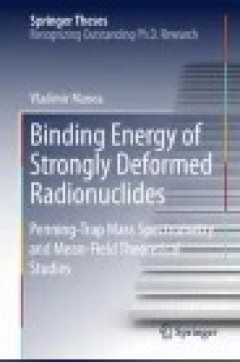
Binding Energy of Strongly Deformed Radionuclides
This thesis reports results of precision mass spectrometry of exotic nuclides as a means of elucidating their structure. The work was performed with the ISOLTRAP spectrometer at CERN’s ISOLDE facility. The author furthermore offers an overview of existing techniques used in Penning-trap mass spectrometry and also reports on recent promising developments regarding ISOLTRAP. This eloquently wri…
- Edition
- -
- ISBN/ISSN
- 978-3-319-20409-3
- Collation
- -
- Series Title
- -
- Call Number
- 539.7

Bigelow Aerospace : Colonizing Space One Module at a Time
Here for the first time you can read: how a space technology start-up is pioneering work on expandable space station modules how Robert Bigelow licensed the TransHab idea from NASA, and how his company developed the technology for more than a decade how, very soon, a Bigelow expandable module will be docked with the International Space Station. At the core of Bigelow's plan is the inflata…
- Edition
- -
- ISBN/ISSN
- -
- Collation
- -
- Series Title
- -
- Call Number
- 520
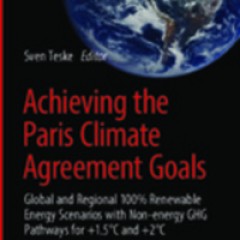
Achieving the Paris Climate Agreement Goals : Global and Regional 100% Renewa…
This open access book presents detailed pathways to achieve 100% renewable energy by 2050, globally and across ten geographical regions. Based on state-of-the-art scenario modelling, it provides the vital missing link between renewable energy targets and the measures needed to achieve them. Bringing together the latest research in climate science, renewable energy technology, employment and res…
- Edition
- -
- ISBN/ISSN
- 978-3-030-05843-2
- Collation
- -
- Series Title
- -
- Call Number
- 551.6 ACH
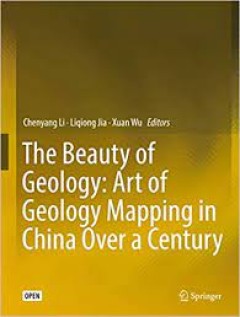
The Beauty of Geology : Art of Geology Mapping in China Over a Century
This open access book contains a collection of rare geologic maps and figures made by Chinese geologists in the last century. Preserved in National Geological Archives of China, these artworks demonstrate the development and innovation of geological mapping technology in China in the past 100 years. The collections are highly scientific and artistic, with most of the hand-drawn maps featured wi…
- Edition
- -
- ISBN/ISSN
- 978-981-13-3786-4
- Collation
- IX, 119 halaman
- Series Title
- -
- Call Number
- 531 BEA

Drought stress in Maize (Zea mays L.) : effects, resistance mechanisms, globa…
This book focuses on early germination, one of maize germplasm most important strategies for adapting to drought-induced stress. Some genotypes have the ability to adapt by either reducing water losses or by increasing water uptake. Drought tolerance is also an adaptive strategy that enables crop plants to maintain their normal physiological processes and deliver higher economical yield despite…
- Edition
- -
- ISBN/ISSN
- 9783319254425
- Collation
- -
- Series Title
- -
- Call Number
- 580
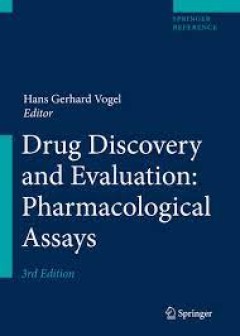
Drug Discovery and Evaluation: Pharmacological Assays
The rapid progress in biology will continue to change the methodological approach to drug discovery in the coming years. Electronic media will continuously help researchers to access and share information. It is, however, becoming more and more evident that many young pharmacologists have only limited training in classical pharmacological methodologies. These long-standing and still highly rele…
- Edition
- -
- ISBN/ISSN
- 9783642277283
- Collation
- LVIII, 2071 p. 5 illus. :
- Series Title
- -
- Call Number
- 572

Aerosol-Cloud Interactions from Urban, Regional, to Global Scales
The studies in this dissertation aim at advancing our scientific understandings about physical processes involved in the aerosol-cloud-precipitation interaction and quantitatively assessing the impacts of aerosols on the cloud systems with diverse scales over the globe on the basis of the observational data analysis and various modeling studies. As recognized in the Fifth Assessment Report by t…
- Edition
- Ed. 1
- ISBN/ISSN
- 978-3-662-47175-3
- Collation
- XXI, 86
- Series Title
- Springer Theses
- Call Number
- 551.6 WAN a
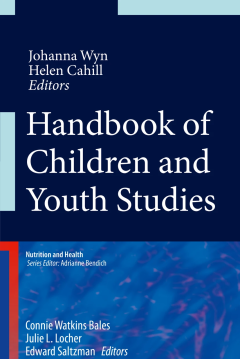
Handbook of Clinical Nutrition and Aging
This is the new and fully revised third edition of the well-received text that is the benchmark book in the field of nutrition and aging. The editors (specialists in geriatric nutrition, medical sociology, and clinical nutrition, respectively) and contributors (a panel of recognized academic nutritionists, geriatricians, clinicians, and other scientists) have added a number of new chapters and …
- Edition
- -
- ISBN/ISSN
- 978-1-4939-1928-4
- Collation
- XXVII, 442
- Series Title
- -
- Call Number
- 574.13 HAN
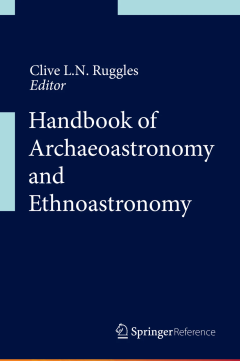
Handbook of Archaeoastronomy and Ethnoastronomy
How human communities interpret what they perceive in the sky is vital in fulfilling humankind’s most basic need to comprehend the universe it inhabits, both from a modern scientific perspective and from countless other cultural standpoints, extending right back to early prehistory. Archaeoastronomy, which is concerned with cultural perceptions and understandings of astronomical phenomena, is…
- Edition
- -
- ISBN/ISSN
- 978-1-4614-6140-1
- Collation
- XXXVI, 2297
- Series Title
- -
- Call Number
- 520 HAN
 Computer Science, Information & General Works
Computer Science, Information & General Works  Philosophy & Psychology
Philosophy & Psychology  Religion
Religion  Social Sciences
Social Sciences  Language
Language  Pure Science
Pure Science  Applied Sciences
Applied Sciences  Art & Recreation
Art & Recreation  Literature
Literature  History & Geography
History & Geography